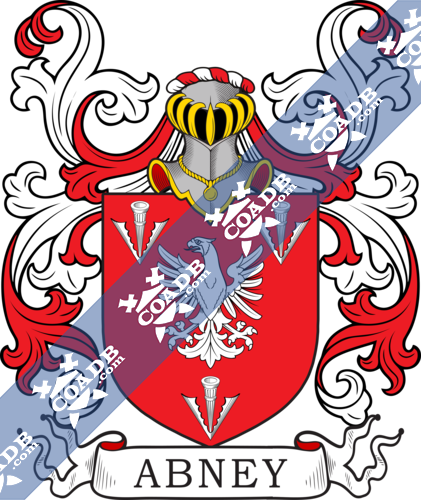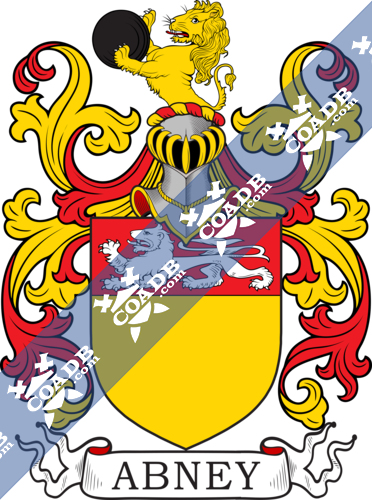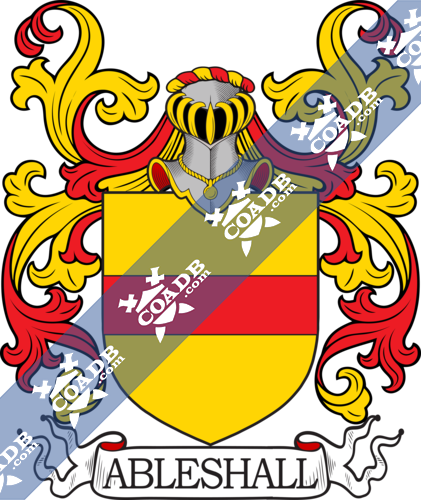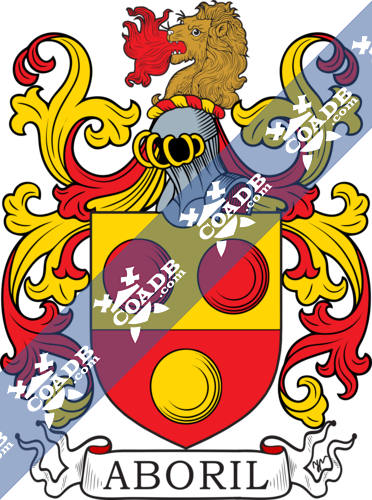Abney Family Crest, Coat of Arms and Name History
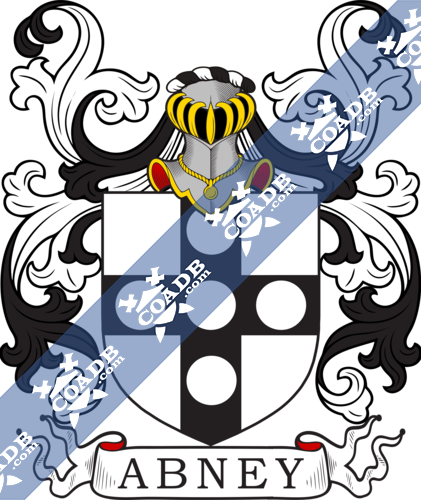
Abney Coat of Arms Gallery
Don’t know which Coat of Arms is yours?
We can do a genealogical research. Find out the exact history of your family!
Learn MoreABNEY
The English surname has its origins in the medieval French word “abba” which translates to island, as such, it was usually a name applied to a person who lived on an island. The name is thought to have migrated to the British Isles after the Norman Invasion in 1066 and was used as a generic term for the English as they lived on an island.
The first recording of the surname, William D’Aubigny appears in the Norfolk tax records dated 1199. These rolls, were a series of census and tax records kept by the English Treasury by order of King John, with the oldest dating back to the 12th century. They hold the distinction of being the oldest consecutive set of records detailing English governance in the United Kingdom. These records span a period of over 700 years
Surnames in Europe prior to the late 16th century were largely unheard of. In the small settlements and villages which existed during earlier times, residents found little need for surnames as everyone in these communities new each other and a given name would usually suffice. However, with the passage of time, population growth and expansions of communities as villages gave way to towns and cities, it became necessary to add a qualifier to a people’s names to distinguish them, one from another. Therefore one person may have been identified by their given name plus their occupation while another may have been identified by their given name and one of their parent’s names. The introduction of surnames by the aristocracy seemed to be the next logical step in this evolution. There was a endless supply from which surnames could be formed, in addition to the use of patriarchal/matriarchal names or reference to the individuals occupation, there were things such as defining physical traits, a familiar geographical location or a topographical landmark found near the individuals home or birthplace, the name of the village in which the person lived, and so much more. Soon, surnames would come not just to represent an individual but whole families.
There often exists variations in spelling of many surnames, as with many given names which date back to the early centuries. The variation in spelling of both given and surnames during this time period can be attributed to a lack of continuity regarding guidelines for spelling which was compounded by the diversity of languages in use in European countries at this time. The variations in the spelling of the surname include but not limited to; Abney; Dabny; Daubny; Daubeney; and Daubeny among others.
The use of surnames aside from making the distinction between individuals with common first names also allowed for the government to have a more accurate method of record keeping for taxes, censuses, and immigration which greatly increased with the discovery of America and the addition of countries to the British Commonwealth such as; Canada, Australia, and New Zealand.
Some of the first recorded immigrants to America bearing the surname or any variation of the spelling were William Abney who arrived in 1635 and settled in Lynn, Massachusetts. Paul Abney landed and settled in Jamestown, Virginia in 1690 and Thomas Abney landed in 1774 1nd settled in Maryland. There were also many immigrants to the British Commonwealth countries of Canada, Australia, and New Zealand bearing the surname.
Worldwide, the highest concentration of people with the surname Abney are found in the United States, Canada, Germany, the United Kingdom, and France. By state, the largest percentile of those with the surname Abney live in Kentucky, Indiana, Missouri, Alabama, and Mississippi.
There are many persons of note who bear the surname such as British born Sir Thomas Abney. He was held the position of one of the original directors of the Bank of England, he was elected Sheriff of London, then Lord High Mayor of London in 1700, and was awarded a knighthood by William III. Abney Park in Stoke Newington is named for him.
British born Mary Abney was Sir Thomas Abney’s second wife. She renamed her family manor home Stoke Newington, Abney Park, later known as Abney House in honor of her husband. She is noted for providing refuge to Isaac Watts, known as the “Father of English Hymnody”. He is credited with having written over 750 hymns a number of which are still in use today.
Blazons & Genealogy Notes
1) (Staffordshire). Gu. an eagle displ. betw. three pheons ar.
2) (Willesley, co. Derby). This was the true coat of the family, and was borne by Sir Thomas Abney, Knt., Lord Mayor of London, 1694 (Harleian MSS. 6076), but in consequence of the marriage, circa 1400, of John de Abeney, with the co-heiress of Ingwardby of Willesley, most of the Abneys, descendants thereof, adopted for their hereditary arms the coat of Ingwardby, viz., or, on chief gu. a lion passant ar. Le Neve’s “ Knights,” gives as the arms of Sir Edward Abney, of Willesley, knighted at Whitehall, 2 Aug. 1673, this latter coat. Ar. on a cross sa. five bezants.
3) (Measham Hall, co. Derby). Motto—Fortiter et honeste. Or, on a chief gu. a lion pass. ar. Crest—A demi lion ramp. or, a pellet betw. the paws.

